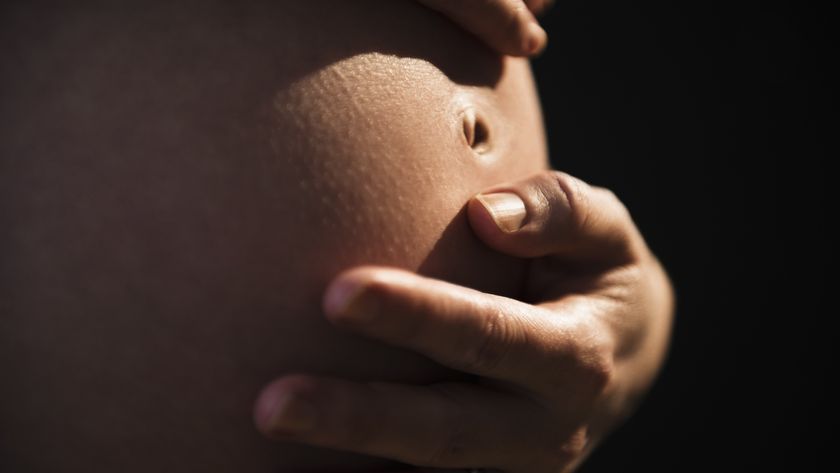
Stress Reduction May Help Women Get Pregnant (Op-Ed)

Dr. Robert Anderson is founder and director of the Southern California Center for Reproductive Medicine in Newport Beach, Calif., and the founder and medical director of the Southern California Institute for Reproductive Sciences in Orange County, Calif. Dr. Anderson contributed this articleto Live Science's Expert Voices: Op-Ed & Insights.
Many women struggling to conceive have heard the advice, "Just relax and you'll get pregnant." But the link between stress and infertility has been a murky one at best — until now. A study recently published in the journal Human Reproduction offers the first scientific evidence that psychological stress may indeed make it more difficult to get pregnant, quantifying this public perception in provocative ways that surely deserve greater investigation.
The promising research enrolled 501 couples and followed them for up to 12 months as they tried to conceive, as well as through pregnancy, if it occurred. The female partners collected their saliva twice during the study period to be measured for cortisol and alpha-amylase, two biomarkers indicating stress. The women's time to pregnancy, if it occurred, was calculated in cycles.
The results were intriguing. The scientists found that of the 80 percent of women completing the protocol, 87 percent became pregnant within the year and 13 percent did not. Adjusting for factors that can affect fertility — including age, race, income and use of alcohol, cigarettes and caffeine — they also learned that women with the highest levels of alpha-amylase had a 29 percent reduction in fertility compared with women measuring with the lowest levels of the stress biomarker, and overall were more than twice as likely to be infertile. [11 Tips to Lower Stress ]
Prior studies examining the potential connection between stress and fertility fell short by using self-reported stress levels, which are notoriously subjective and unreliable. But the new research is the first in the United States to demonstrate a link between salivary stress biomarkers and the time to pregnancy, and the first in the world to observe an association with infertility.
However, the study design did have some notable flaws. Salivary levels of stress chemicals were measured only twice near the beginning of the research, but not repeated over the duration of the 12-month study period, making it impossible to know if the recorded stress levels were sustained, fell or rose. Also, we have no way of knowing whether these 501 couples had any conditions predisposing them to infertility, such as low sperm count or hormonal problems.

Still — while it's by no means a definitive piece of research — the study's strengths are also clear. Ideally, scientists will move on to expand these findings, extending the research period and repeatedly measuring salivary stress biomarker levels. At least now, a stress biomarker has been identified that can be measured and compared among groups of women in many other settings — a cornerstone of solid science.
Sign up for the Live Science daily newsletter now
Get the world’s most fascinating discoveries delivered straight to your inbox.
My patients, already seeking treatment for infertility, often tell me how stressed they are. While advanced IVF techniques can help more women than ever become pregnant — with nearly 85 percent success rates in women under 40 seen in our clinic — some women still can't get pregnant this way, and we don't know why. It would be interesting to find out if people not achieving pregnancy even through IVF have measurably higher stress levels than others — another potential focus for future research.
Meanwhile, I can use these new results to guide my stressed-out patients to try proven calming measures such yoga , acupuncture and group counseling as they continue attempting to conceive. These simple, inexpensive approaches to stress reduction — while perhaps not a substitute for infertility treatments — are much less costly and may markedly help. Even in its current form, this research is news we can use.
Follow all of the Expert Voices issues and debates — and become part of the discussion — on Facebook, Twitter and Google +. The views expressed are those of the author and do not necessarily reflect the views of the publisher. This version of the article was originally published on Live Science.

'Mini placentas' in a dish reveal key gene for pregnancy

Diagnostic dilemma: Teen's improbable pregnancy occurred after oral sex










